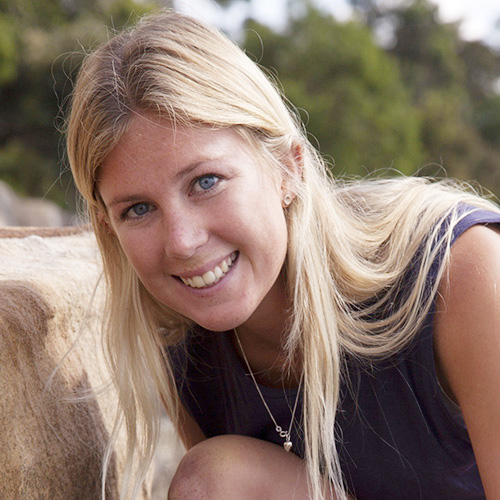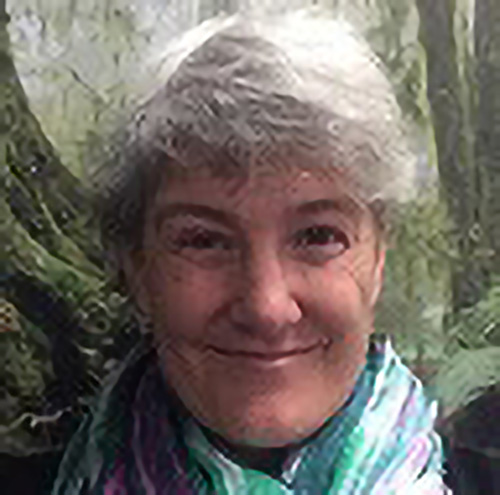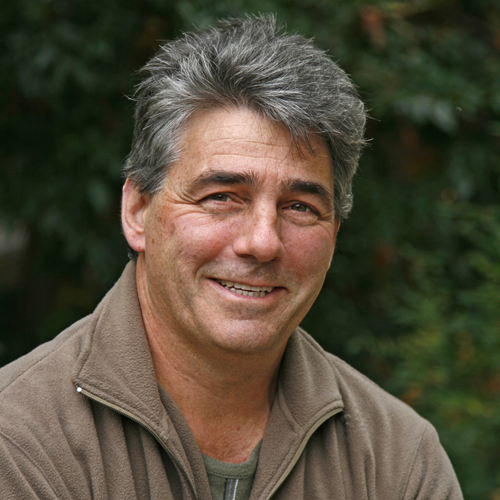Climate Change, Fire, and Biodiversity webinar series

Much of Australia is expected to experience hotter and drier conditions due to climate change. These conditions will likely impact the biodiversity in our ecosystems by influencing bushfire risks, extreme weather conditions, seasonal patterns, and resource availability.
Join our speakers and panellists for a discussion on climate change, bushfire preparedness and policies, building resilient ecosystems, and managing carbon to improve biodiversity conservation.
PAST EVENTS
Lessons from the fires: A biodiversity and climate perspective
25 August 2020
The 2019/20 bushfire season in Australia was unprecedented in the historical record. Over 12 million hectares were burnt in eastern and southern Australia and nearly 3 billion frogs, reptiles, birds and mammals were killed.
Climate change is making bushfire conditions more dangerous than ever, with increasing risks to people, property, and the environment. Efforts are now underway to develop prioritisation and recovery plans for key vulnerable species, enact rapid biodiversity recovery responses, and establish better adaptation options.
Bringing together perspectives from biodiversity and climate change experts, and policy makers, this webinar will focus on understanding bushfire seasons under a changing climate, preparedness for future bushfires seasons, and ongoing impacts on biodiversity.
Supplementary resources: Available in Dropbox.
Speakers and facilitators
|
|
Speaker: David Karoly (Leader, NESP Earth Systems and Climate Change Hub) is an internationally recognised expert on climate change and climate variability, Fellow of the Australian Academy of Science and honorary Professor at the University of Melbourne. David contributed to four Assessment Reports of the Intergovernmental Panel on Climate Change and has provided expert advice to government through membership on a number of Australian Government climate science advisory boards. | |
|
|
Speaker: John Woinarski (Deputy Director, NESP Threatened Species Recovery Hub) is the Deputy Chair of the Wildlife and Threatened Species Bushfire Recovery Expert Panel and has long experience in research, management and policy relating to Australian biodiversity, with particular concern for the conservation of threatened species. His research interests also include island endemism, the responses of biodiversity to fire and pastoralism, the impacts of invasive predators, and the management of conservation reserves. He is a Professor of Conservation Biology at CDU. | |
|
|
Panellist: Sally Box (Australia Government’s Threatened Species Commissioner) works with conservation organisations, governments, community and the private sector to implement practical conservation actions to recover our most threatened plants and animals. Since January, Sally is also the Chair, Wildlife and Threatened Species Bushfire Recovery Expert Panel, supporting the Government’s response to managing the environmental impacts from the black summer bushfires. | |
|
|
Panellist: Andrew Dowdy (Australian Bureau of Meteorology & Earth Systems and Climate Change Hub) conducts research focused on extreme weather phenomena and the physical processes influencing their risk of occurrence. Andrew is the Lead Chief Investigator of the NESP ESCC Hub’s Extreme Weather Projections research project, and leads research projects in the BNHCRC on seasonal prediction of fire danger and in the Electricity Sector Climate Information (ESCI) project. | |
|
|
Panellist: Luke Purcell (Manager, AFAC National Resource Sharing Centre) is the project lead on AFAC’s Climate Change Group. He was the AFAC NRSC Manager during the international deployments of Australian and New Zealand firefighters to USA and Canada in 2018, and supported the coordination of international assistance and interstate resource sharing during the 2019/2020 black summer.Oliver Costello (CEO, Firesticks Alliance Indigenous Corporation, and Threatened Species Recovery Hub Indigenous Reference Group) |
|
|
|
Oliver Costello (CEO, Firesticks Alliance Indigenous Corporation) is a proud Bundjalung man from Northern NSW with a broad range of experience from community, private and public sectors in Indigenous Cultural fire practice, Aboriginal Joint Management partnerships, Indigenous Natural Cultural Resource management and Indigenous governance. He is passionate about caring for Country, Indigenous leadership, empowerment, partnerships and recognition of cultural knowledge and practice through community led mentorship on Country. | |
|
|
Panellist: Dan Rogers (Principal Ecologist, South Australian Department for Environment and Water) provides strategic ecological advice to government, natural resource managers and non-government organisations. He spends most of his time operating in the space between researchers and environmental managers, such that environmental decisions are made using the best available evidence. | |
|
|
Panellist: Vanessa (Ecologist NSW, Bush Heritage Australia) oversees the ecological monitoring and research programs for Bush Heritage’s reserves and partnerships in New South Wales. Vanessa previously worked as an ecologist for Bush Heritage in Western Australia where she led the development of the Bush Heritage Birriliburu Aboriginal Partnership that is based on right-way science support of the growing ranger program within the Birriliburu Indigenous Protected Area in the Little Sandy Desert. |
|
|
|
Facilitator: Rachel Morgain (Knowledge Broker, NESP Threatened Species Recovery Hub) is a knowledge translation specialist and environmental researcher with extensive experience working at the interface of research and policy. As the knowledge broker for the Threatened Species Recovery Hub, she builds partnerships for research that makes a difference. She writes on social and cultural perspectives on environmental values and the role of science in policy and society. |
Building climate resilience through natural habitats
7 September 2020
Climate projections suggest that climate extremes and natural disasters are likely to become more frequent and/or more intense in the coming decades. These effects could damage human infrastructure and threaten ecosystems, biodiversity, and habitation. Building resilience in our ecosystems and biodiversity can help mitigate climate extremes.
Our speakers will discuss the consequences of climate extremes on biodiversity, the use of natural assets and habitats to protect natural ecosystems, and how we can build resilience in our habitats to buffer against climate extremes.
Supplementary resources: Available in Dropbox.
Speakers and facilitators
|
|
Speaker: John Clarke (Research Team Leader, CSIRO) leads the Outreach Component of the Earth Systems and Climate Change Hub regional climate change projections project. He has a decade of experience developing and delivering climate projections tailored to the needs of practitioners and researchers in the climate impacts and adaptation field. John and his team previously led the development of the Climate Change in Australia website and its 14 web-tools. | |
|
|
Speaker: Nicki Mitchell (University of Western Australia and NESP Threatened Species Recovery Hub) leads research on predicting impacts of climate change on threatened species, and on intervention strategies such as assisted colonisation. She has particular expertise on how global warming will affect sex determination and survival in reptiles (especially sea turtles), and how drying climates are challenging terrestrial-breeding frog species. Nicki is also a member of the Commonwealth Threatened Species Scientific Committee. | |
|
|
Speaker: Rebecca Morris (Postdoctoral Research Fellow, National Centre for Coasts and Climate at the University of Melbourne) leads research in the ecological engineering theme within the centre, which is focused on nature-based coastal defence. She works in interdisciplinary teams of marine ecologists, engineers and social scientists to investigate the role natural and created coastal habitats have in managing erosion and flooding. | |
|
|
Speaker: Georgia Garrard (Senior Lecturer, RMIT) is an interdisciplinary conservation scientist in ICON Science and Sustainability and Urban Planning at RMIT University. Her research seeks to improve biodiversity outcomes in human-dominated landscapes through better planning, design and communication. She is co-leader of NESP TSR Project 6.3 Improving Communication and Community Buy-in to Threatened Species Conservation. She currently sits on DELWP's Scientific Reference Panel and Birdlife Australia's Research and Conservation Committee.t. | |
|
|
Speaker: Samarla Deshong (Indigenous Project Officer, NRM) is a descendant from the Koinmerburra and Kabi Kabi tribes in Queensland. Samarla works on Koinmerburra (which is her mother’s country) on the coast of Central QLD. She is very passionate about furthering the voice and inclusion of Traditional Owners in the management and planning of our land and waters. Samarla is also a member of two Traditional Owner working groups of the Great Barrier Reef Foundation and is a member of the Steering Committee for the First Nation Peoples Gathering on Climate Change, supported by the Earth Systems and Climate Change Hub. |
|
|
|
Facilitator: Sonia Bluhm (Knowledge Broker, NESP Earth Systems and Climate Change Hub) facilitates knowledge exchange between stakeholders and researchers to shape research plans to produce science outcomes, products, and tools which meet stakeholder needs. She has over a decade of experience working in government on climate change topics, science planning and climate change communication | |
|
|
Facilitator: Rachel Morgain (Knowledge Broker, NESP Threatened Species Recovery Hub) is a knowledge translation specialist and environmental researcher with extensive experience working at the interface of research and policy. As the knowledge broker for the Threatened Species Recovery Hub, she builds partnerships for research that makes a difference. She writes on social and cultural perspectives on environmental values and the role of science in policy and society. |
Evidence based planning for resilient World Heritage Areas
22 September 2020
Twenty World Heritage Areas are recognised in Australia by UNESCO for their unique cultural, geographical, and biological diversity. While these areas support outstanding universal values, they are under risk from diseases, invasive species, and declining ecosystem processes. These ecological pressures may be exacerbated in the presence of a changing climate.
Drawing on recent research on the Gondwana rainforests, our speakers will discuss the benefits and challenges of integrating climate change and biodiversity knowledge in developing adaptive management plans to build more resilient World Heritage Areas.
Supplementary resources: Available in Dropbox.
Speakers and facilitators
|
|
Speaker: Melinda Laidlaw (Senior Ecologist, DES) leads the Decision Tools for Predicting Current and Future Species Habitat project for the Queensland Department of Environment and Science. Melinda also investigates the impacts of climate change on the Gondwana Rainforests of Australia World Heritage Area |
|
|
|
Speaker: Dave Newell (Senior Lecturer, Southern Cross University) works on understanding the ecology of endangered amphibians, most of which are narrow range endemics susceptible to climate change and disease impacts. His work in the World Heritage rainforests of northern NSW over several decades with park managers improved conservation outcomes for Australia’s unique frogs. | |
|
|
Panellist: Innes Larkin (Owner, Mt Barney Lodge) has been twice a member of the Community Advisory Committee for the Gondwanan Rainforests of Australia World Heritage property, and Deputy Chair of Ecotourism Australia. He is passionate about sustainable tourism and the lasting legacies it can bring to a region. |
|
|
|
Panellist: Robyn Whipp (Senior Policy Officer, Department of Agriculture, Water and the Environment)has expertise in vegetation ecology and works in the Natural Heritage Division. Her work focuses on ensuring that Australia can meet its commitments to properly manage and care for our World Heritage properties and National Heritage places. | |
|
|
Panellist: Tricia Waters (Executive Officer, Gondwana Rainforests of Australia World Heritage Area, NSW National Parks and Wildlife Service) supports strategic management of the World Heritage property through management committees and advisory groups, with a focus on supporting inclusive collaboration and creative partnerships. | |
|
|
Panellist: Sugata Narsey (Research Scientist, Bureau of Meteorology) works on topics in climate change, variability and extremes with a focus on the dynamics of rainfall. In collaboration with ESCC Hub stakeholders and next-users, he works to develop salient and practical climate change science information that can be used to inform future planning and decision-making. | |
|
|
Panellist: Geoff Pegg (Forest Production & Protection Team Leader, Department of Agriculture and Fisheries Queensland) is a forest pathologist with more than 20 years’ experience in forest pathology, working on the management of diseases impacting commercial and native forests. He more recently focussed on myrtle rust and expanding forest biosecurity, working with the Butchulla Land & Sea Rangers. |
|
|
|
Facilitator: Sonia Bluhm (Knowledge Broker, NESP Earth Systems and Climate Change Hub) facilitates knowledge exchange between stakeholders and researchers to shape research plans to produce science outcomes, products, and tools which meet stakeholder needs. She has over a decade of experience working in government on climate change topics, science planning and climate change communication. | |
|
|
Facilitator: Rachel Morgain (Knowledge Broker, NESP Threatened Species Recovery Hub) is a knowledge translation specialist and environmental researcher with extensive experience working at the interface of research and policy. As the knowledge broker for the Threatened Species Recovery Hub, she builds partnerships for research that makes a difference. She writes on social and cultural perspectives on environmental values and the role of science in policy and society. |
Carbon sequestration & biodiversity: valuing & managing carbon-rich systems
13 October 2020
International and national climate mitigation policies have seen a growing interest in approaches to carbon accounting and investments in carbon-rich systems. Increasingly this interest includes a focus on the importance of carbon stored in biodiverse systems, as well as the value of integrating biodiversity and other values into new carbon investments. Our speakers will discuss the concept of ‘green’ and ‘blue’ carbon accounting in biodiverse systems and explore new approaches to integrating biodiversity, social and cultural values with carbon accounting. They will also examine the effetcts of the 2019-20 fire season on Australia’s carbon budget, how carbon stocks are impacted by a changing climate, and strategies for ensuring biodiverse carbon sinks are sustainable and resilient to future shocks.
Supplementary resources: Available in Dropbox.
Speakers and facilitators
|
|
Speaker: Pep Canadell (Chief Research Scientist, CSIRO and Executive Director, Global Carbon Project), and leads the ESCC Hub project on Australia’s carbon budget. Pep’s research focuses on global and regional analyses of trends, processes and budgets of the sources and sinks of the main greenhouse gases. His research also focuses on abrupt ecosystem changes and collapse due to rapid climate change, including the role of fire. Pep is currently a coordinating lead author for the IPCC Sixth Assessment Report. | |
|
|
Speaker: David Lindenmayer (ANU Sustainable Farms and Threatened Species Recovery Hub) is Deputy Director of the Threatened Species Recovery Hub. He conducts long-term monitoring programs in south-eastern Australia, developing ways to conserve biodiversity in native ecosystems, plantations, and on farm land. He is an Officer of the Order of Australia, and has won many awards including the Australian Natural History Medal, and the Serventy Medal for Ornithology. | |
|
|
Speaker: Rowan Foley (CEO, Aboriginal Carbon Foundation) comes from the Wonduna clan of the Badtjala people, Traditional Owners of K’gari (Fraser Island) Queensland. He is the former Park Manager of Uluru-Kata Tjuta National Park and was first Land Management Officer for the Kimberley Land Council establishing their Land and Sea Management Unit. The establishment of New Zealand’s Maori Carbon Foundation in 2018 was inspired and guided by the AbCF in Australia. |
|
|
|
Panellist: Megan Evans (Lecturer, University of New South Wales, Canberra) is a Lecturer and ARC DECRA Fellow within the School of Business at the University of New South Wales, Canberra. Megan’s expertise sits broadly within environmental policy, governance and economics, with a focus on market-based instruments. Her current research is examining the growth of private sector investment in biodiversity and natural capital. | |
|
|
Panellist: Paul Ryan (Manager, Forests, Department of Industry, Science, Energy and Resources) leads a team providing policy advice on the role of forests and vegetation management in climate change mitigation. Paul’s work has focussed on developing ways for land managers to conduct vegetation projects under the Australian Government’s Emissions Reduction Fund. | |
|
|
Panellist: Adrian Enright (Director of Partnerships, Tasman Environmental Markets) leads the partnership strategy for Tasman Environmental Markets, the largest buyer of voluntary Australian offsets. He has experience across all aspects of the carbon market having held roles in carbon project development across south east Asia, Australia and policy roles with the State Government. |
|
|
|
Panellist: Elisa Rauling (Science and Planning Manager, Greening Australia's Great Southern Landscapes Program) works with a team of talented scientists and practitioners to translate academic research into on-ground best practices to scale up programs, explore new conservation finance models, and improve ecological impact. | |
|
|
Facilitator: Rachel Morgain (Knowledge Broker, NESP Threatened Species Recovery Hub) is a knowledge translation specialist and environmental researcher with extensive experience working at the interface of research and policy. As the knowledge broker for the Threatened Species Recovery Hub, she builds partnerships for research that makes a difference. She writes on social and cultural perspectives on environmental values and the role of science in policy and society. | |
|
|
Facilitator: Sonia Bluhm (Knowledge Broker, NESP Earth Systems and Climate Change Hub) facilitates knowledge exchange between stakeholders and researchers to shape research plans to produce science outcomes, products, and tools which meet stakeholder needs. She has over a decade of experience working in government on climate change topics, science planning and climate change communication. |
































